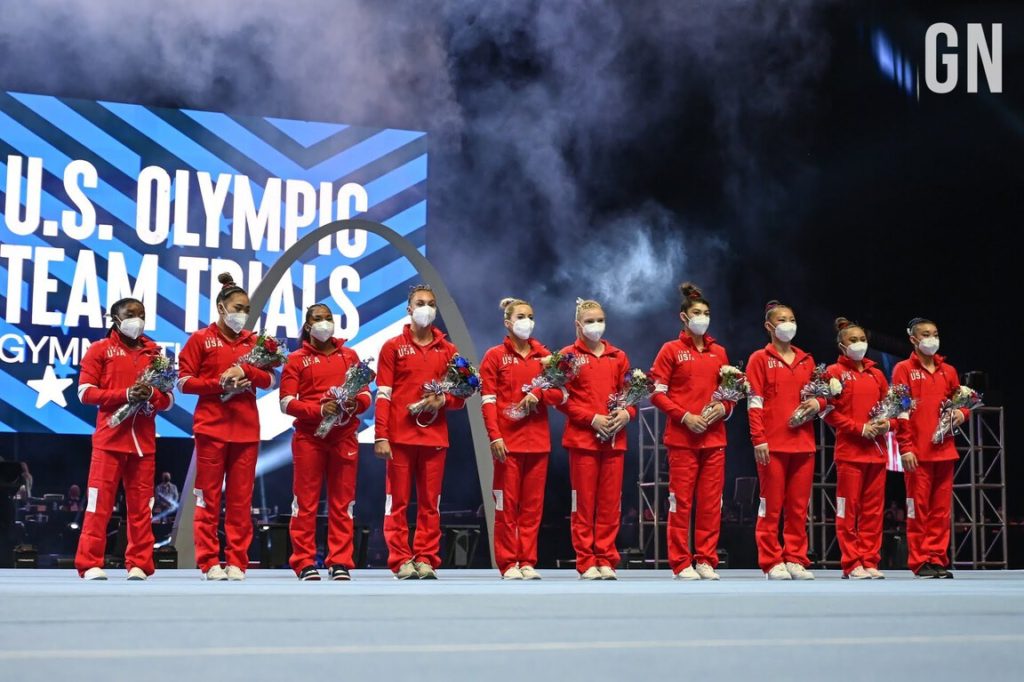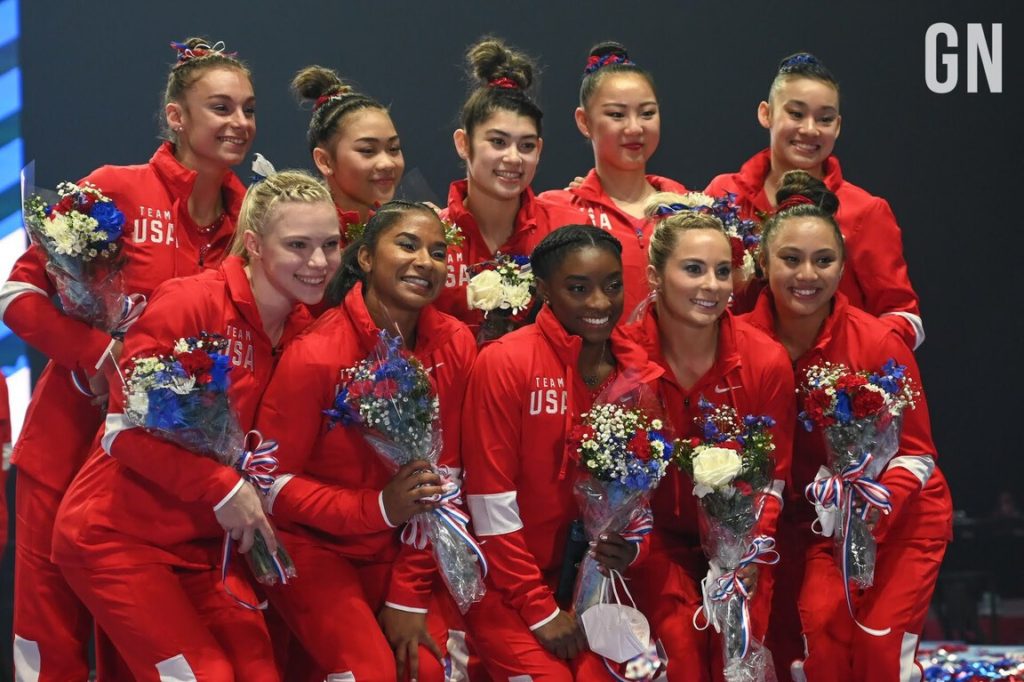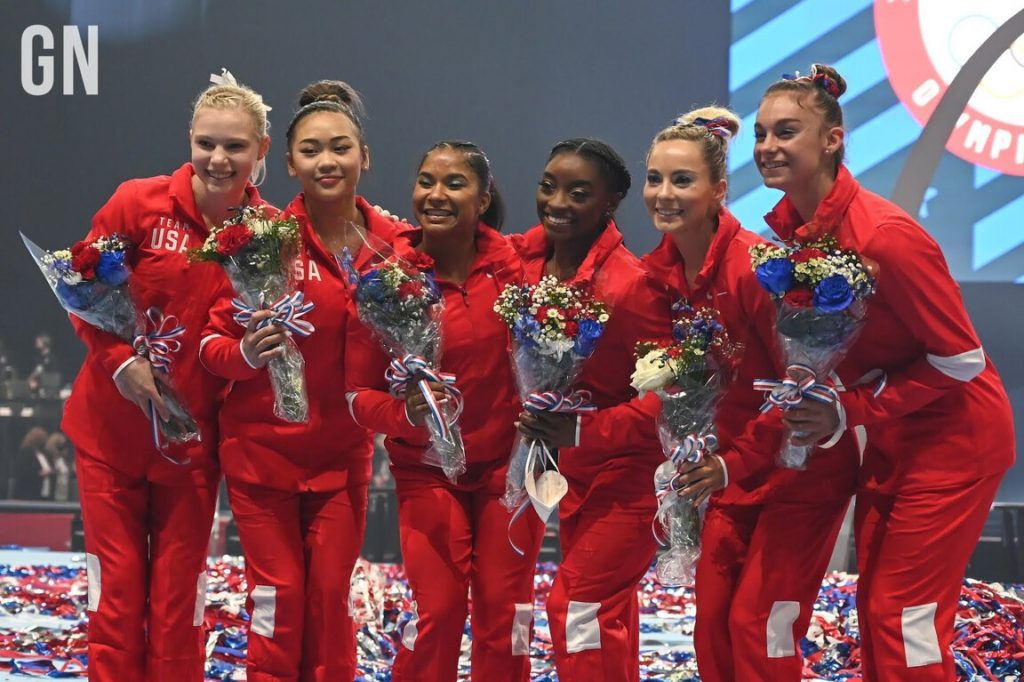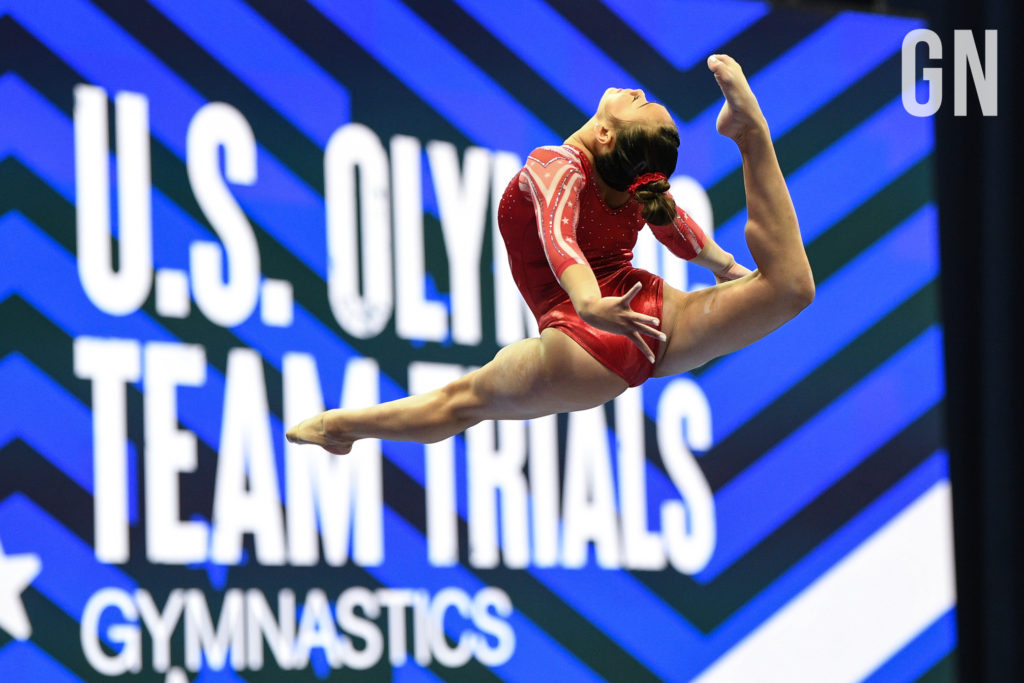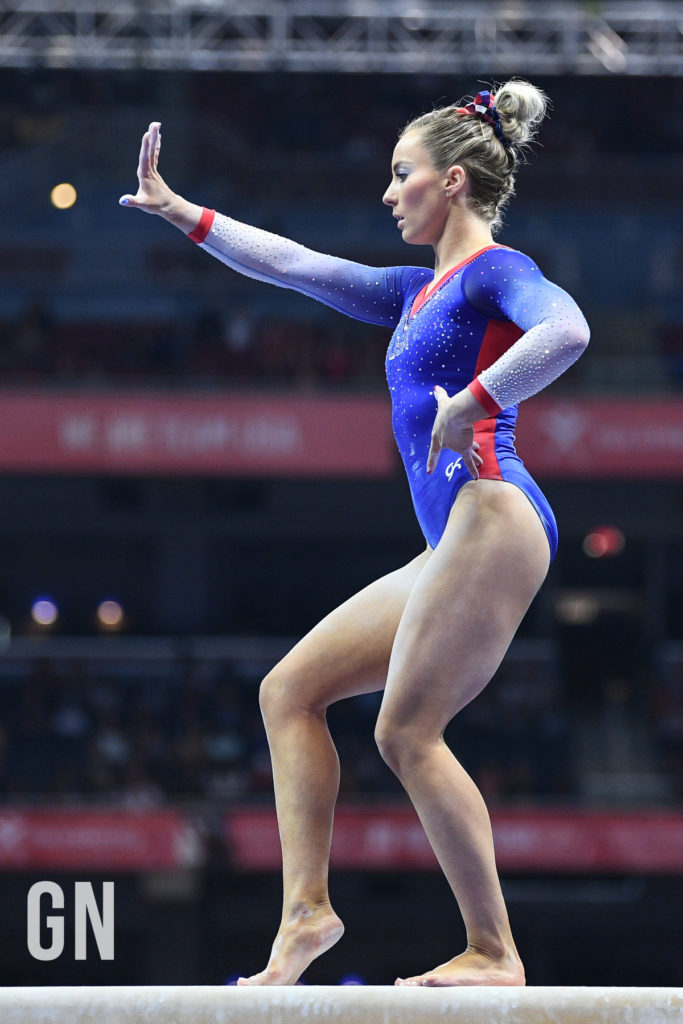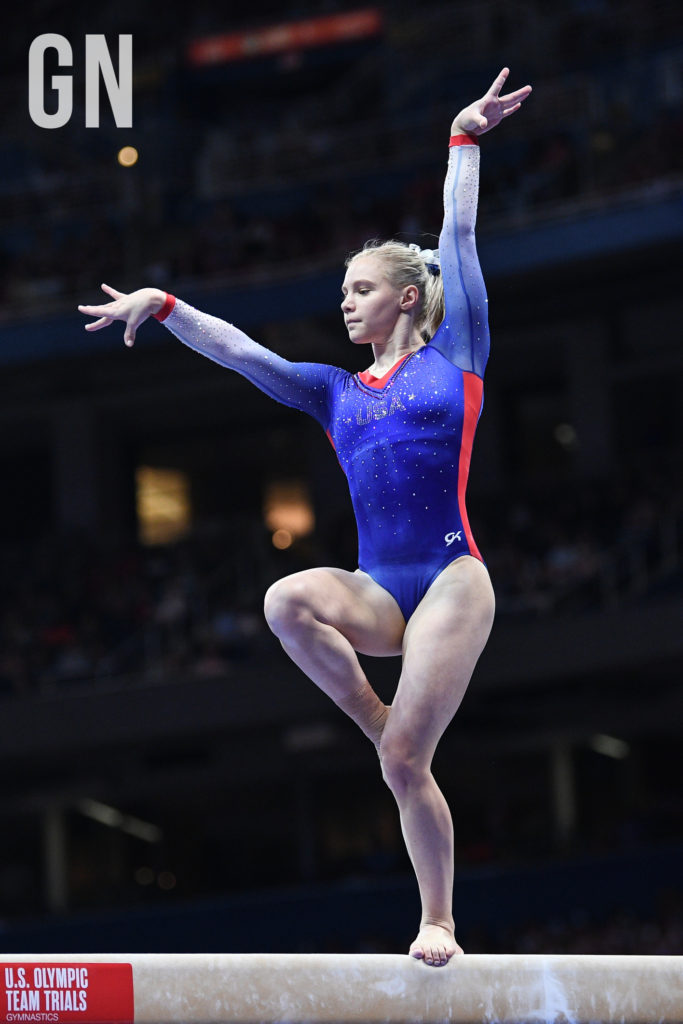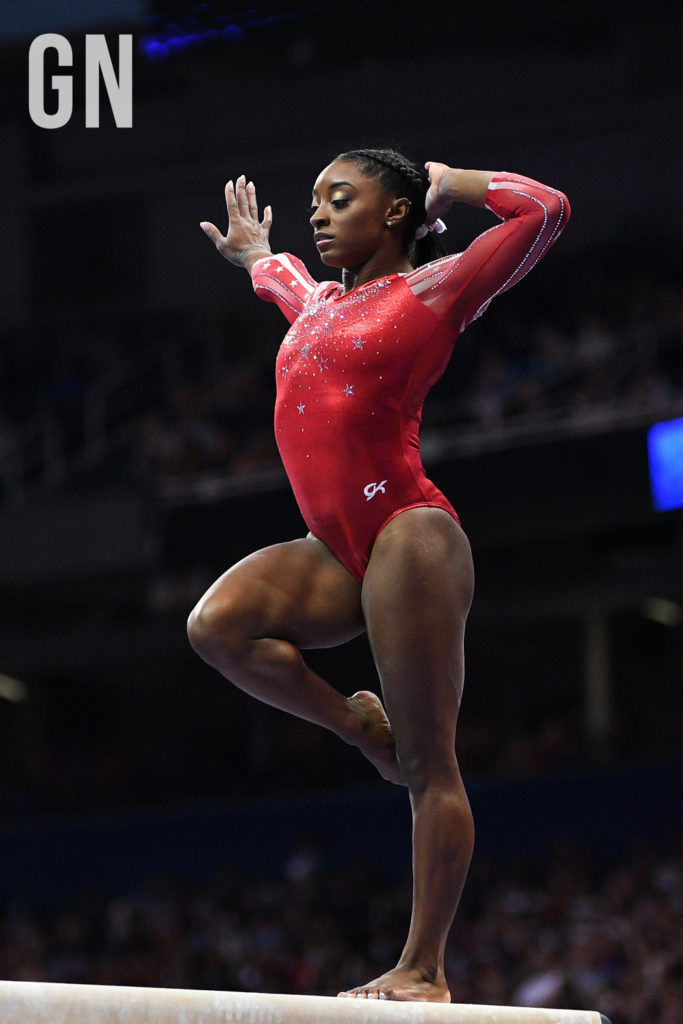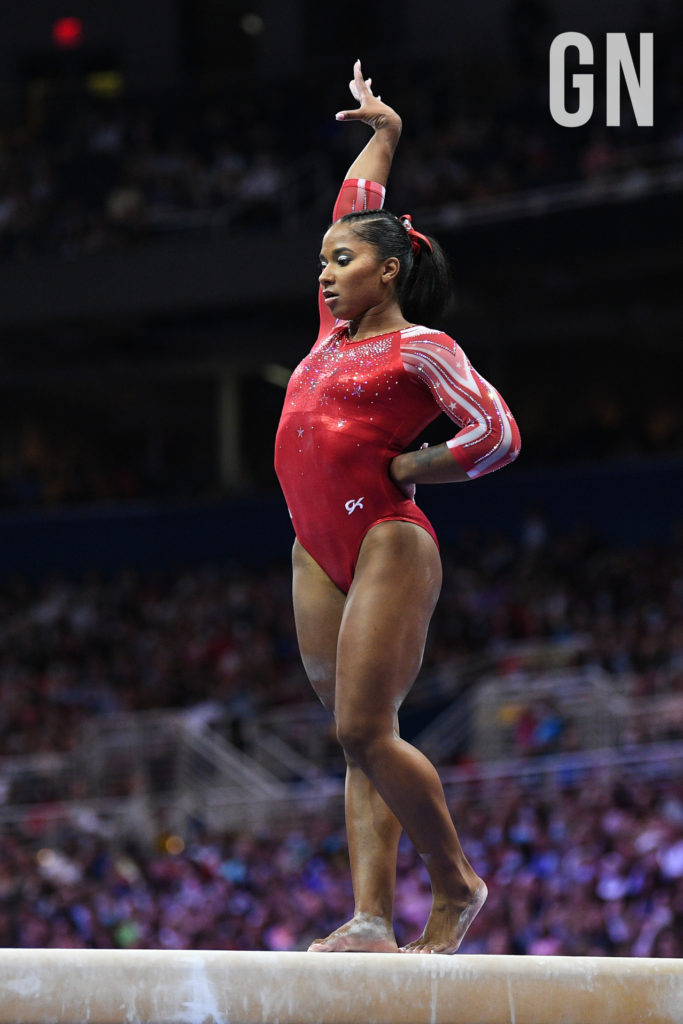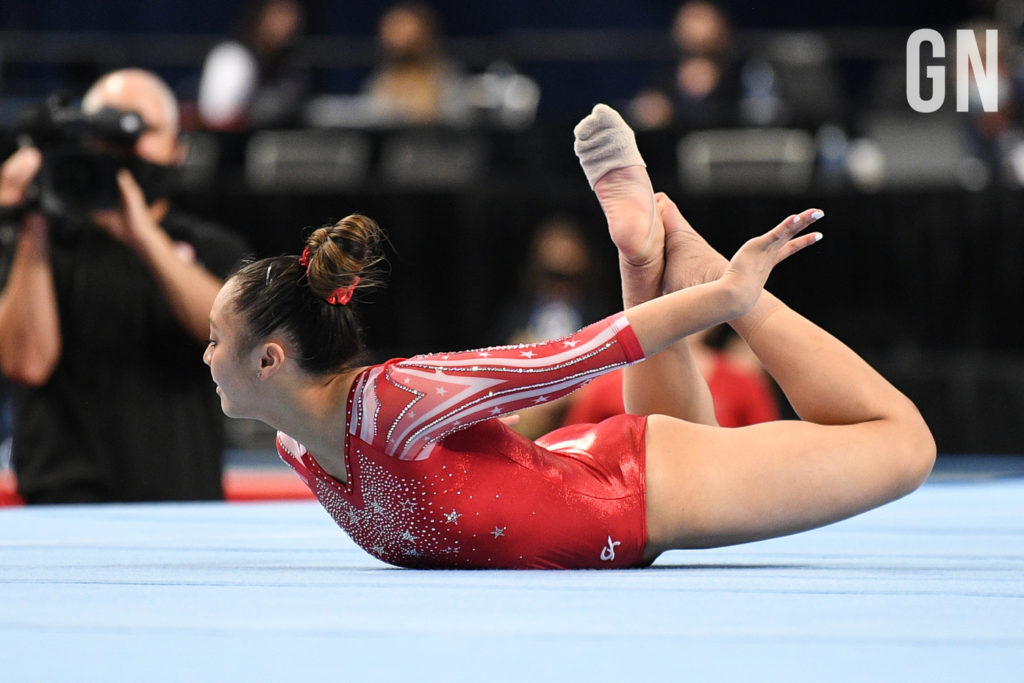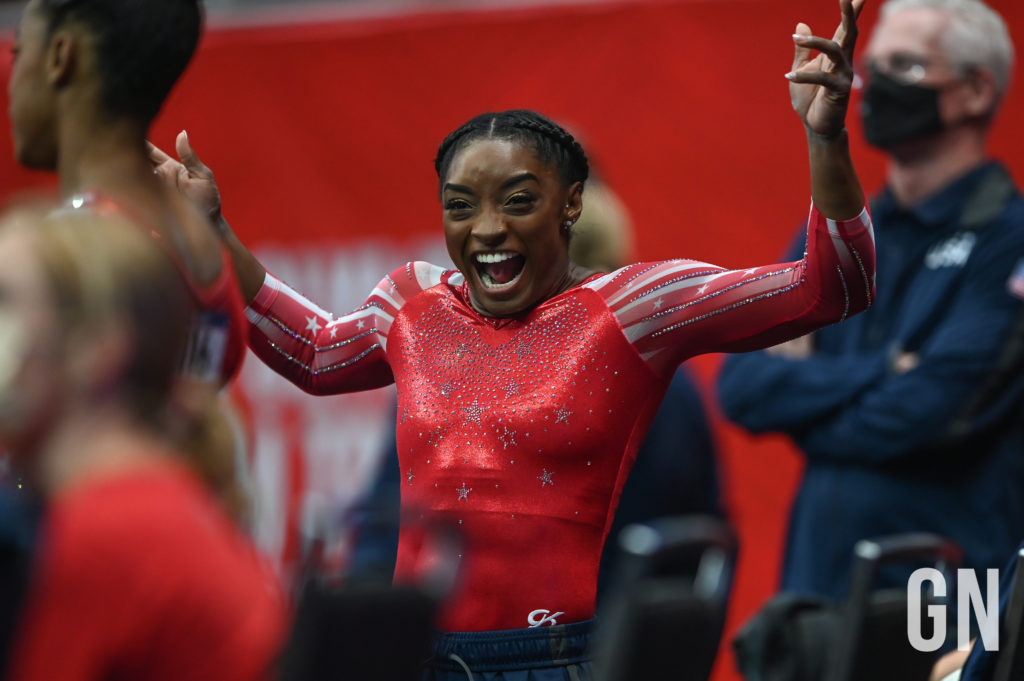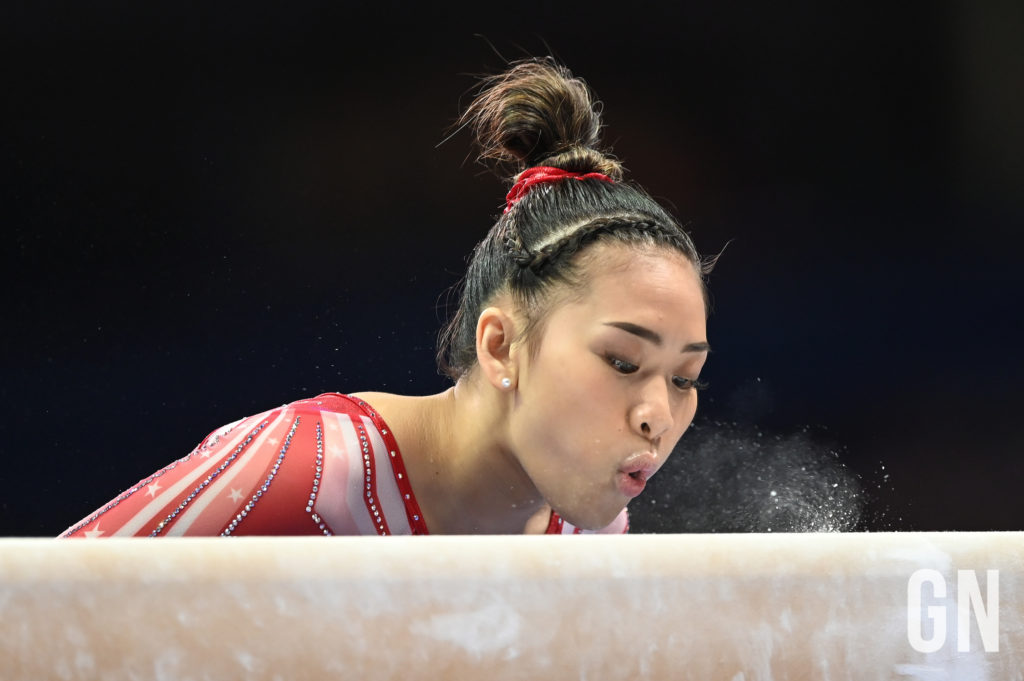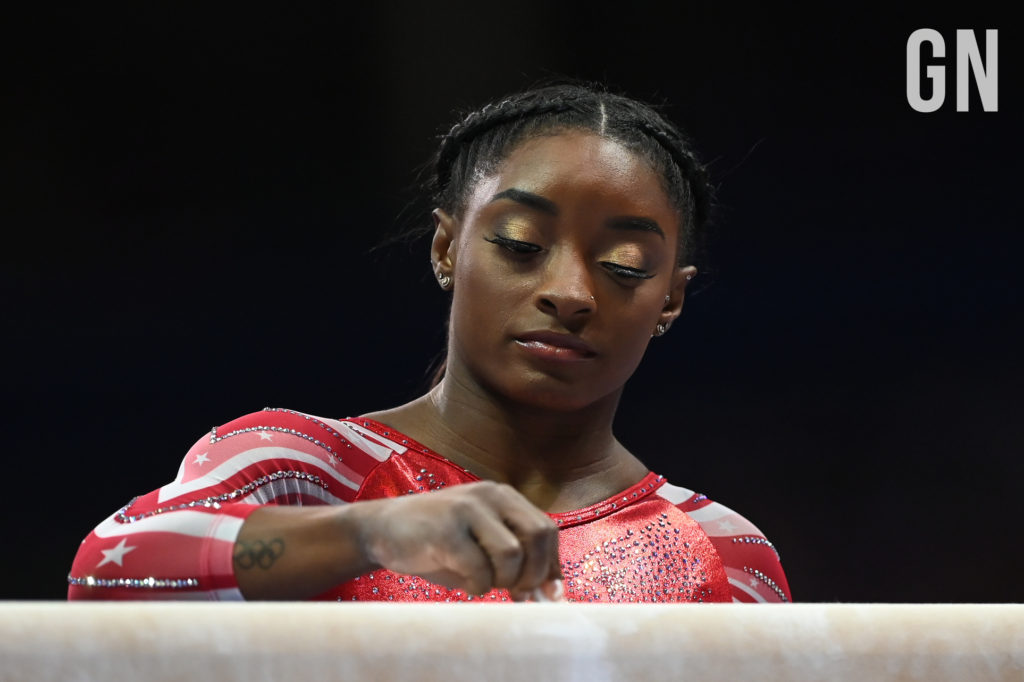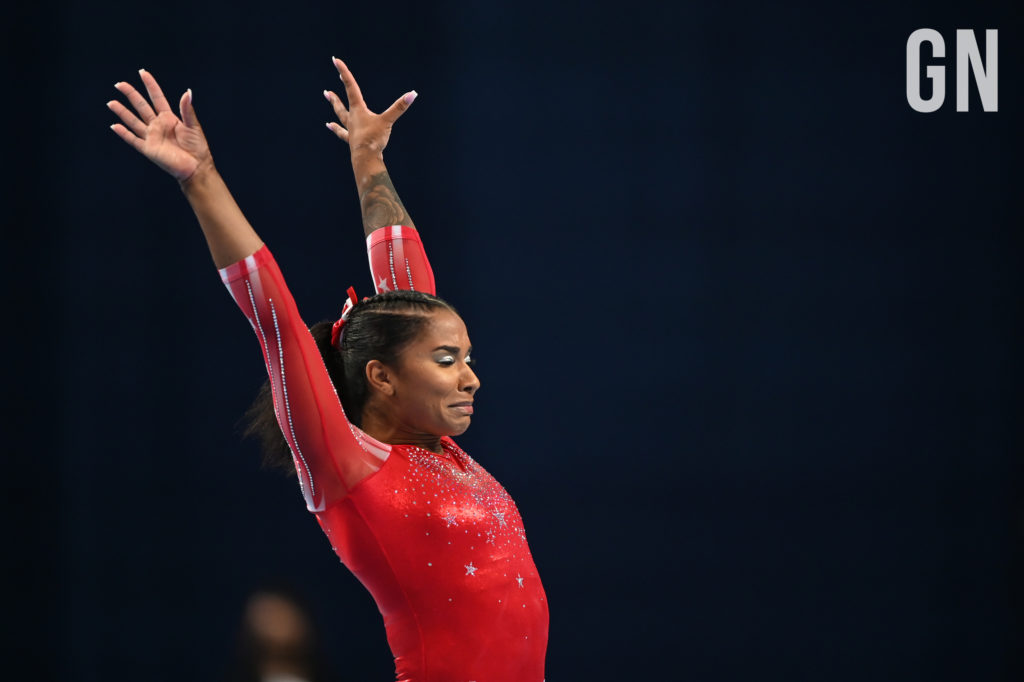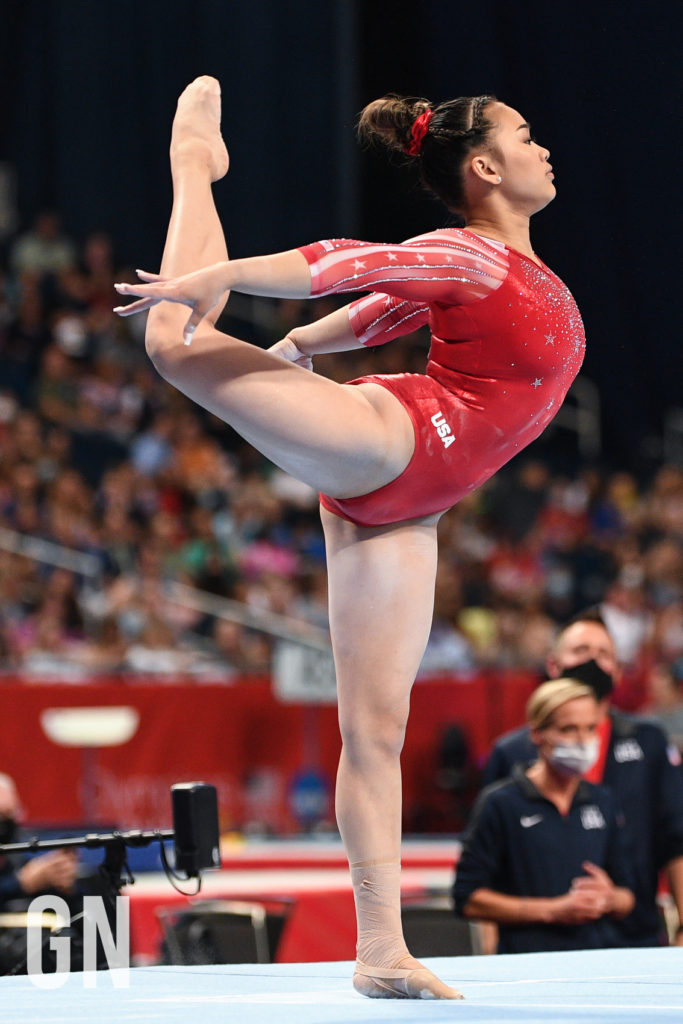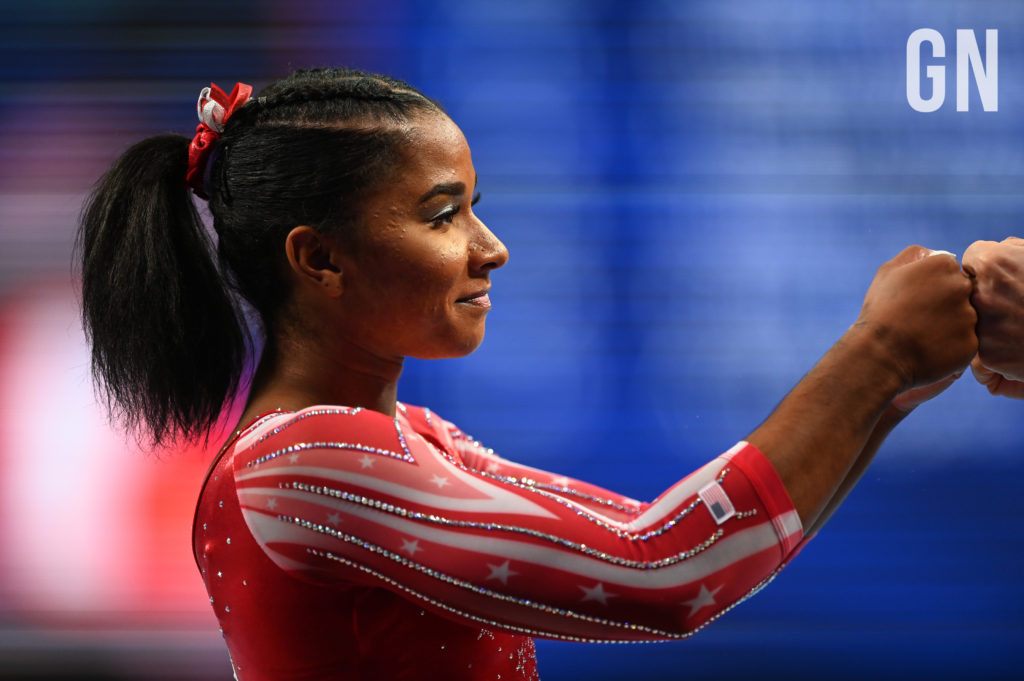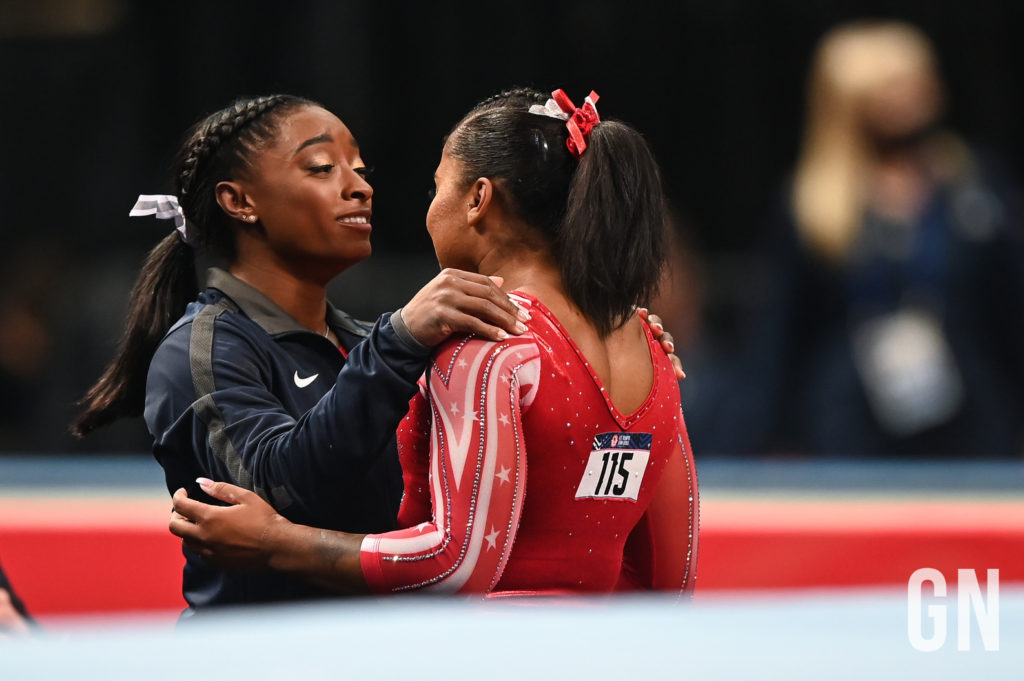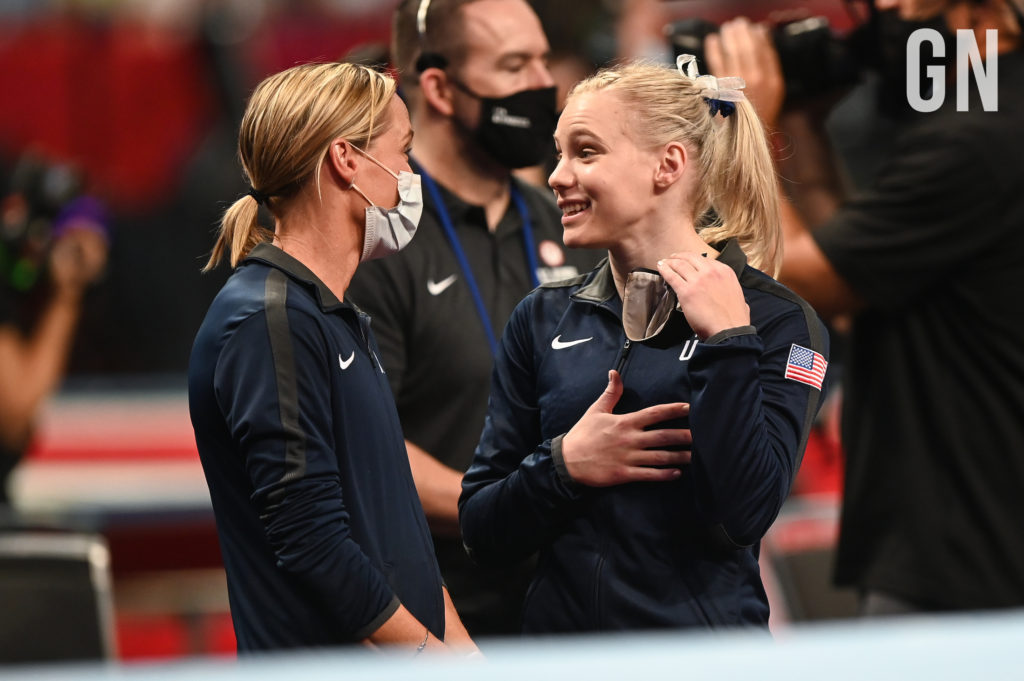Simone Biles, US women set to dominate another Olympics; specialist decision sparks controversy
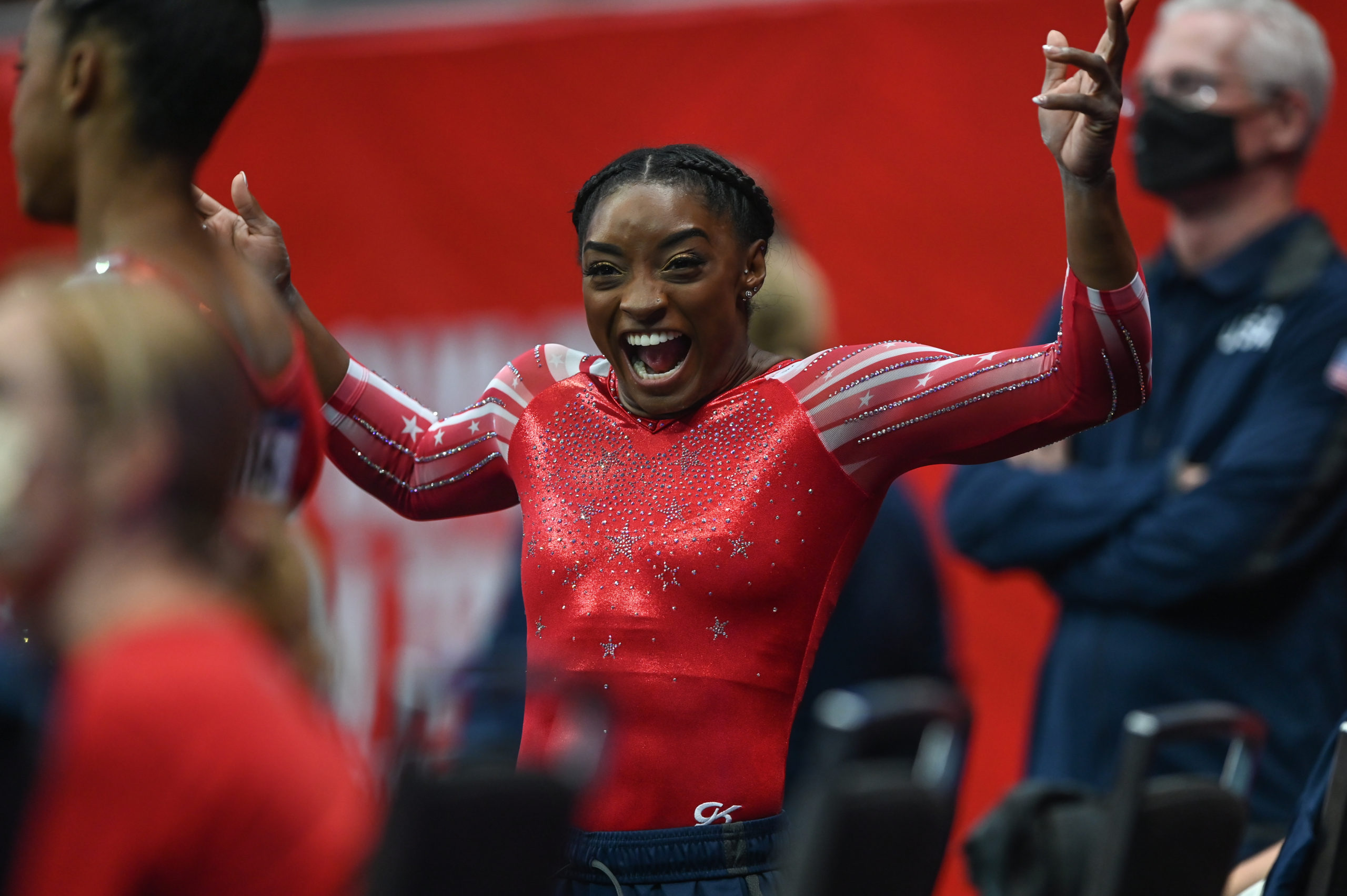
Five years after making her first Olympic team, Simone Biles is heading back to the Olympic Games – this time as the undisputed leader of the U.S. women’s team for the Tokyo Games.
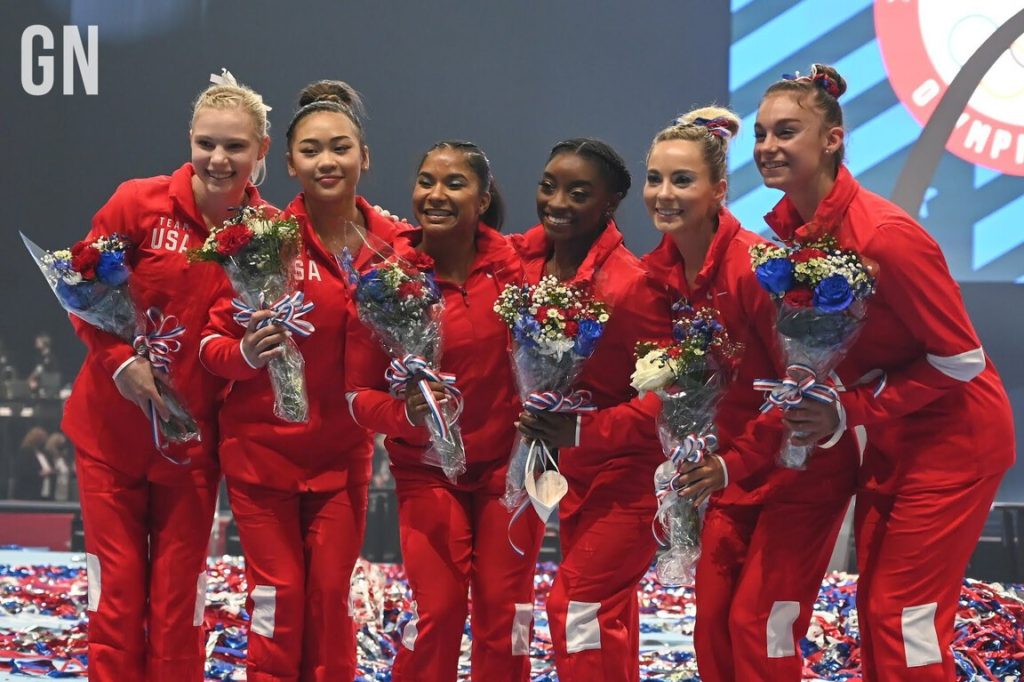
Sure, Biles was the leader on the mat back in 2016, but veterans Aly Raisman and Gabby Douglas were showing her the ropes back then, when she says it was “all a blur.”
Now, as the only Olympic veteran of the team, Biles knows what to expect and will be looked to for her leadership by the five other members of Team USA: Sunisa Lee, Jordan Chiles, Grace McCallum, Jade Carey (event specialist), and MyKayla Skinner (event specialist).
“I think I’ll try to live in the moment,” Biles said Sunday night about what she plans to do differently at her second Olympics. “Once we got [to Rio in 2016], everything happened so quick. I also think that the pace we’re going at this time we get to relax a little bit and kind of enjoy training and enjoy the process.”
The 24-year-old World Champions Centre gymnast automatically qualified to Tokyo after finishing in first at the 2021 US Gymnastics Olympic Trials with a 118.098 two-day total on Sunday, despite an uncharacteristically subpar day two meet.
After easily executing her Cheng (15.400) and Amanar (15.366) vaults in the first rotation, Biles had a major error on her opening Weiler 1/2 on bars (13.833) before having to count a fall on beam in the next rotation (13.700).
Biles was visibly emotional as she had her ankles taped between beam and floor, seeming to tell her coach, Laurent Landi, “I know, but I’m in so much pain.”
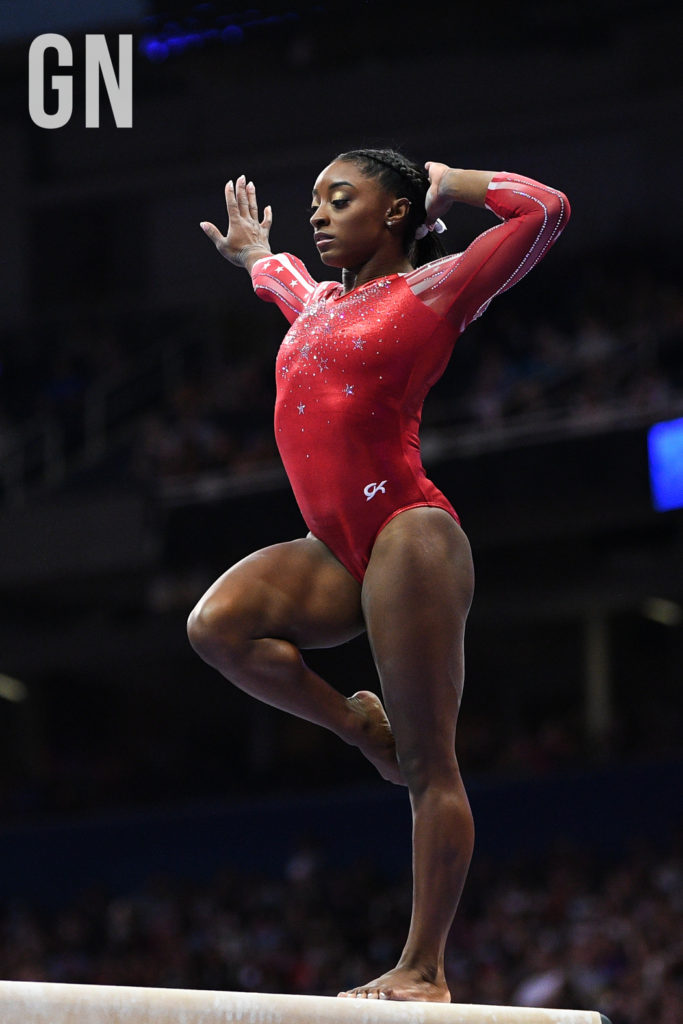
She went on to hit her floor routine (14.600), and although she was unable to stay in bounds on all of her passes like night one, the best floor-worker in the world received a standing ovation from the packed crowd at The Dome at America’s Center in St. Louis.
When asked if she was crying during the meet because she was injured, Biles replied, “I’m just old. I’m always in pain. Something always hurts.”
The most impressive performance during the second day of competition came from bars standout Sunisa Lee, who has shown drastic improvement since her all-around return at U.S. Championships earlier this month.
In a jaw-dropping turn of events, Lee actually beat Biles on day two with a 58.166 all-around total versus Biles’ 57.533 – an impressive feat, in general, but especially with the 18-year-old only competing a three-pass floor routine (13.933), a slightly easier version of her typical bars routine (14.900), and a downgraded beam dismount (14.733).
”It does give me a lot of confidence going into the Olympics,” Lee said when asked about winning day two of trials. “I know it probably won’t happen again… But yeah, I was really excited. I actually didn’t even realize that until my coach told me [after the meet].”
Lee’s two-day total of 115.832 placed her second behind Biles in the final Olympic Trials standings, earning the future Auburn gymnast the second automatic qualifying spot on the team.
Biles’ World Champions teammate Jordan Chiles finished third overall (114.631), hitting all eight of her routines at trials and becoming the only gymnast on the Olympic Team to hit 24-24 routines at major U.S. meets this year.
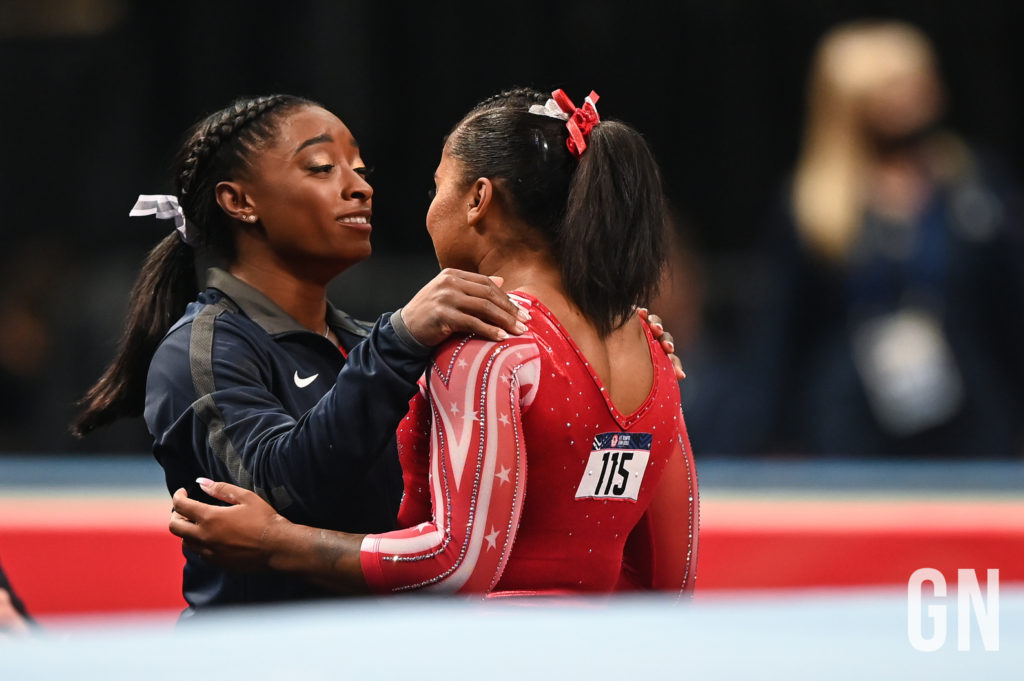
As the realization dawned on her that she was about to become an Olympian, Chiles took the crowd on a passionate journey as she performed an emotion-filled floor routine (14.233) to conclude her meet.
“When I truly realized it was definitely after my floor routine when I started crying, and I was just like, ‘Oh my gosh. I really have a chance at making this team,’” Chiles said.
Walking off the podium, Chiles was embraced by her “big sister” Biles – both with tears in their eyes – who told the 20-year-old, “I’m so proud of you.”
While Chiles didn’t automatically qualify to the four-person team, by the conclusion of trials there was no doubt the budding star would join Biles and Lee in Tokyo.
The battles for the fourth spot on the main team and the one remaining specialist spot were the most contentious coming in to the meet, and the selection committee’s choices are, unsurprisingly, contentious coming out of it, too.
After MyKayla Skinner finished night one in fourth place – 0.100 ahead of McCallum – the two gymnasts were considered the favorites to fill that final spot. On night two, Skinner notched lower scores on beam and floor, ultimately placing her fifth behind McCallum with a 112.264 – 112.564, with the latter ultimately being selected to the main four-person team.
When it came down to the selection committee’s discussion after the meet, High Performance Director Tom Forster said, “We looked at possible team scores and realized it’s just a couple of tenths difference between them and, looking at the whole two day process and U.S. Championships as well, it seemed appropriate to go in rank order, so that’s what we did.”
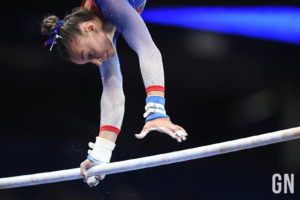
Biles, Lee, and Chiles are all expected to be used on bars, beam, and, likely, floor in the three-up, three-count team final, naturally making the fourth spot a favorite for someone strong on vault like Skinner, who is a specialist and consistently competes both the difficult Cheng and Amanar.
When comparing the two gymnast’s first vault scores alone, Skinner averaged 0.500 above McCallum on vault at trials and 0.400 at nationals, meaning taking the former would have given the U.S. women the highest potential team score between the two, which Forster acknowledged after the team announcement.
”Yes, if we used MyKayla on the team, her vault is higher and higher than anybody else’s except for Simone’s over the last couple of days, so that does alter the team score,” Forster elaborated on the decision. “But, in my opinion and in the selection committee’s opinion, it wasn’t enough to warrant putting her in that position.”
Skinner was instead selected to fill the remaining specialist spot and will join Jade Carey, who is also a vault and floor specialist, as an individual competitor in Tokyo.
Barring any major errors by Carey or Skinner in qualifications in Tokyo, the two-per-country rule will almost certainly make one of the two gymnasts ineligible for the vault final, with reigning Olympic vault champion Biles expected to qualify ahead of them.
Since Biles is expected to qualify to vault, beam, and floor finals, Chiles is strong on floor, and Lee is strong on bars and beam, many expected the final specialist spot to be awarded to a bars worker, with Carey’s Arizona Sunrays teammate Riley McCusker the favorite.
McCusker hit her 6.2/6.4 D-score set at Winter Cup, both days at championships, and the first day of trials – consistently placing second behind Lee on the event – before having to count a fall on Sunday after an uncharacteristic mistake.
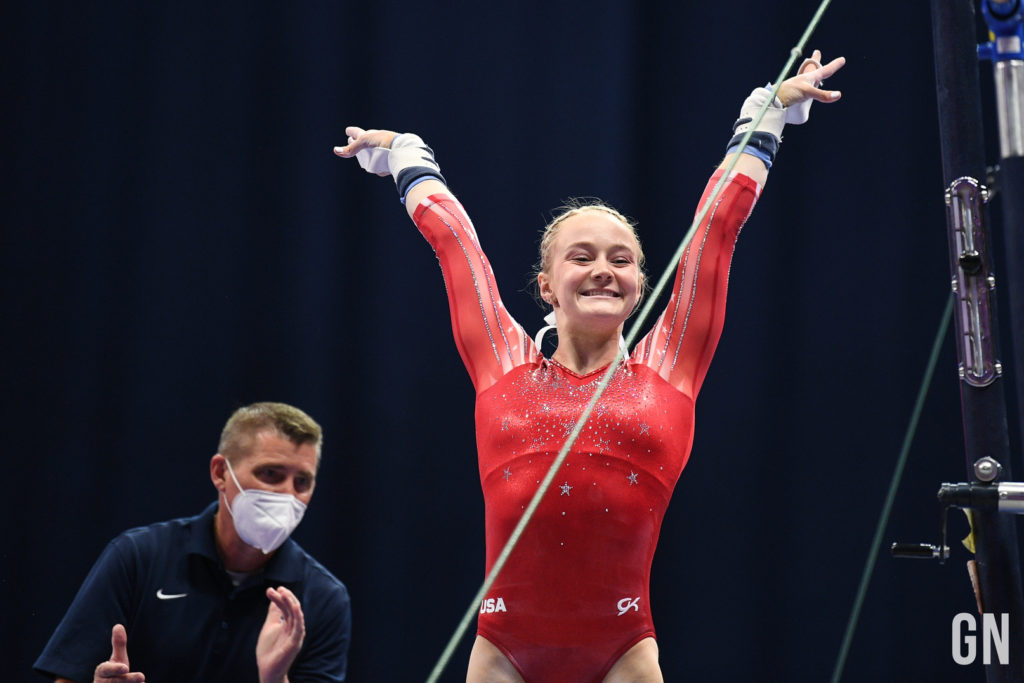
”We [were] heartbroken for Riley when she fell on her mount tonight and finished with a great routine, but when it comes down to it, MyKayla also has world class start values and execution on vault and, you know, she hit,” Forster said. “So that’s how we decided.”
Skinner told media last week that Forster encouraged her to pursue the all-around in her elite comeback instead of focusing on floor and vault since Carey already had that covered, so when she was announced as the second individual, she was shocked.
”After they called that fourth name in the back room, I was like, ‘Oh my gosh, am I going to be the alternate again?’” Skinner reflected on the moment. “I was super stressed, and then they called me for the individual spot. I was actually super shocked. I didn’t know they would want to use me for the individual spot.”
Skinner, like Carey, plans to compete in the all-around during qualifications in Tokyo. As individual specialists, neither athlete will participate in the team competition, having to wear a different leotard than the main team during qualifications, but both are eligible to compete for medals on any and all individual events.
Four alternates were selected to the Olympic Team and will travel to Tokyo to train with the main six-woman team: Kayla DiCello, Kara Eaker, Emma Malabuyo, and Leanne Wong.
The team is set to travel to Japan for training camp in mid-July. Gymnastics competition at the Tokyo Games kicks off July 23 with men’s qualifications. You can find out when and how to watch gymnastics at this summer’s Olympic Games here.
You can relive day two of women’s competition at the 2021 US Gymnastics Olympic Trials by reading our live blog from here. Click here for full results.
